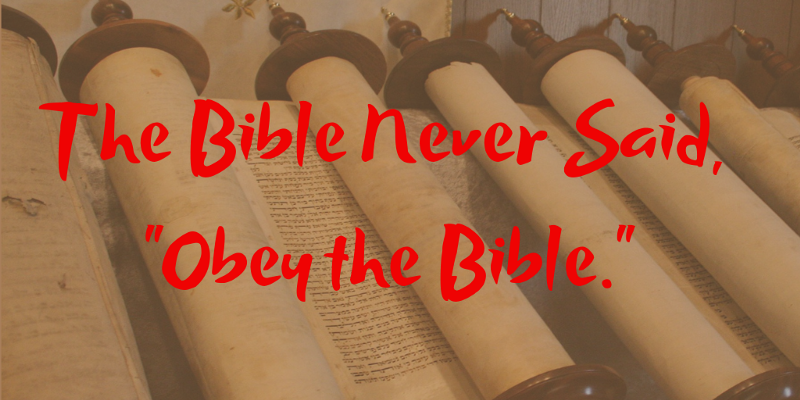“Hey, you’re dressed queer.”
I look over. The speaker is an elderly man, mid-70s I’d guess. He is tall and thin and is wearing of those caps that cabbies wore in movies from the Forties.
“You’re dressed queer,” he snarls. “Why you dressed so queer.” I have on my usual fringes, and, for good measure, have worn some sandals and am carrying a knotty maple walking stick I’d bought on the Internet for $25.
“I’m trying to live by the rules of the Bible. The 10 commandments, stoning adulterers…”
“You’re stoning adulterers?”
“Yeah, I’m stoning adulterers.”
“I’m an adulterer.”
“You’re currently an adulterer?”
“Yeah. Tonight, tomorrow, yesterday, two weeks from now. You gonna stone me?”
“If I could, yes, that’d be great.”
“I’ll punch you in the face. I’ll send you to the cemetery.”
He is serious. This isn’t a cutesy grumpy old man. This is an angry old man. This is a man with seven decades of hostility behind him.
I fish out my pebbles from my back pocket.
“I wouldn’t stone you with big stones,” I say. “Just these little guys.”
I open my palm to show him the pebbles. He lunges at me, grabbing one out of my hand, then chucking it at my face. It whizzes by my cheek.
I am stunned for a second. I hadn’t expected this elderly man to make the first move. But now there is nothing stopping me from retaliating. An eye for an eye.
I take one of the remaining pebbles and whip it at his chest. It bounces off.
“I’ll punch you right in the kisser,” he say.
“Well, you really shouldn’t commit adultery,” I say.
We stare at each other. My heart is racing.
Yes, he is a septuagenarian. Yes, he had just threatened me using corny Honeymooners dialogue. But you could tell: This man has a strong dark side.
Our glaring contest lasts ten seconds, then he walks away, brushing by me as he leaves.
This little vignette from A.J. Jacobs’ The Year of Living Biblically, hilariously highlights the impracticality of attempting to obey the Bible in our contemporary world.
As my own, less funny, experience with shutting down a church and trying to stay within the confines of the speed limit attest, following the letter of the New Testament isn’t any more tenable.
Following all the Bible’s instructions isn’t possible, but that’s okay because the Bible doesn’t expect us to.
While it contains rules, they weren’t written specifically to us. Yet, for some reason we’ve come to believe they were.
Our generalization of commands written to other people can be subjective and arbitrary too.
As a for instance, would you include, eating only meat that had first been drained of blood on a list of rules Christians should observe?
No?
What about Acts 15:29 which says, “You are to abstain from food sacrificed to idols, from blood, from the meat of strangled animals and from sexual immorality. You will do well to avoid these things”?
In context, these instructions are very clearly from a letter written as a specific response to a specific situation affecting a specific group of Christians living in a specific region of the world. Having the benefit of the backstory with the letter situated in a larger narrative, we instinctively know that those instructions weren’t given to us.
And yet, when we look at the greeting just a few verses earlier, it reads a whole lot like the other epistles to which we feel beholden, “The apostles and elders, your brothers, To the Gentile believers in Antioch, Syria and Cilicia: Greetings.”
If it’s an authoritative epistle written by a council of the Lord’s apostles, why don’t we afford it the same treatment as the other epistles? The only difference seems to be situational. Should this letter have survived outside the book of Acts and been collected with the others, I have no doubt that it would have been dubbed, “The Epistle to the Syrians,” or just “Syrians.” I also have no doubt that Christians would have been arguing throughout the past sixteen centuries as to just how much blood might be acceptable in a piece of meat.¹
While the epistles contain a trove of wonderful wisdom and commentary on the gospel, we must keep in mind that they are other people’s mail.
The authors of those letters indicate no inkling that they thought they were writing volume two of God’s book. Paul seems least of all aware that anyone would later compile his letters to include them in a canon of holy writ. Near the end of his life, he put his hope in the transferability of his simple message and manner of life rather than in the codification of his writings. In 2 Timothy 2:2 he wrote to his beloved protégé, “And the things you have heard me say in the presence of many witnesses entrust to reliable people who will also be qualified to teach others.” Not coincidentally, this also seems to have been Jesus’ method for perpetuating truth.²
To be fair, Peter does call the writings of Paul Scripture in 2 Peter 3:16. But what does that mean?
Let’s look at the designation in context to get an idea:
And count the patience of our Lord as salvation, just as our beloved brother Paul also wrote to you according to the wisdom given him, as he does in all his letters when he speaks in them of these matters. There are some things in them that are hard to understand, which the ignorant and unstable twist to their own destruction, as they do the other Scriptures. (2 Peter 3:15–16)
There it is. I agree that the writings we find in Matthew through Revelation are inspired, so I have no problem agreeing with Peter that the letters of Paul are Scripture. Under grace, “Scripture,” comes to fulfill a purpose different from the one it served under law. Whether we find it in the New Testament or the Old, Scripture provides wisdom. Paul proclaimed that regenerated people were under no obligation to follow the letter of the Torah, while also encouraging them to find Jesus in it. In the same way, we needn’t follow the letter of the New Testament, but must seek Jesus there.³
By including Paul’s writings along with “the other Scriptures,” Peter classifies them along with the books of the Old Testament like Deuteronomy. I’ve never been inclined to cook a young goat in its mother’s milk, but should the need arise, I am free to do so without pang of conscience. I can also pray with a hat on.
Under grace, we must treat all Scripture as wisdom literature.
Why? Because everything is lawful, but not everything is beneficial. Isn’t that what Paul said in 1 Corinthians 6:12 and 10:23?
Consider what Paul wrote about the value of the Hebrew Scriptures:
But as for you, continue in what you have learned and have become convinced of, because you know those from whom you learned it, and how from infancy you have known the Holy Scriptures, which are able to make you wise for salvation through faith in Christ Jesus. All Scripture is God-breathed and is useful for teaching, rebuking, correcting and training in righteousness, so that the servant of God may be thoroughly equipped for every good work. (2 Timothy 3:14–17 emphasis mine NAW)
Just because the Torah no longer bound believers with the condemning power of a legal code didn’t mean it no longer had value. By the way, Paul didn’t pen these words in reference to any portion of the twenty-seven books we call the New Testament. In encouraging him to attend to the Scriptures he’d been raised on, Paul didn’t mean for Timothy’s conscience to be bound to its procedural dictates.

When we, as Peter did, acknowledge Paul’s writings as Scripture, we must treat them like Paul treated the Scripture he had in hand. To do anything else would be to violate Paul’s own intent since he himself said:
For if I rebuild what I tore down, I prove myself to be a transgressor. For through the law I died to the law, so that I might live to God. I have been crucified with Christ. It is no longer I who live, but Christ who lives in me. And the life I now live in the flesh I live by faith in the Son of God, who loved me and gave himself for me. I do not nullify the grace of God, for if righteousness were through the law, then Christ died for no purpose.(Galatians 2:18–21 ESV)
Had Paul meant for his writings to enslave those set free by the gospel, he would have been a transgressor according to his own words.
I don’t know what kind of awareness might be granted to those who’ve passed on, but if Paul knows that his words have been turned into a new law, he must be fuming. What’s more, those who handle Matthew through Revelation that way come under Peter’s indictment as those who’ve twisted the Scriptures.
Treating the Scriptures as a trove of divine wisdom actually will make us value them more. If we see the New Testament as a book of laws, all it can do is condemn us and divide us. From my previous experience, I know that people don’t go looking for more rules than the ones they’re already keeping. If we see it as a book of wisdom, we’ll pore over it time and again mining all of its beneficial insights.
On the other side of the coin, if we read something in the New Testament that our gospel-renewed minds know would not benefit our spiritual family or the cause of Christ in our day, then we’re beholden by the gospel to violate that instruction. While laws can be arbitrary, wisdom must stand the test of experience. Let that sink in a minute.
The church I serve with comes from a tradition which held very closely to the prohibitions against women speaking in the assembly of believers. Pauline passages such as 1 Corinthians 14:34–35 and 1 Timothy 2:11–15 seem to prohibit female participation in the public gathering of the church. While those passages might be interpreted otherwise, it takes a bit of work. Certainly, there might have been extenuating circumstances to which we’re not privy. That’s most likely the case, but even if Paul meant for all churches to silence their women until Christ returns, should we observe that restriction?
I don’t think so.
The intent of this sort of instruction seems to have been to provide procedural order in the churches to maximize mutual encouragement and to expedite the spread of the gospel. If we really are under a covenant of spirit and not the letter, then faithful treatment of these texts would require us to violate their particulars when they become discouraging and counterproductive.
We’re free to make that call because Matthew through Revelation isn’t our covenant. God wants us to obey the gospel. That’s why Jesus could hold up a cup at his last Passover and say, “This cup is the new covenant in my blood.” A bunch of letters collected and bound together over three hundred years later mustn’t be allowed to supersede the mandates implicit in the redemptive death and resurrection of Christ. We’re beholden to the gospel and the consequences for disobedience are dire.
You might be wondering how we can obey the story of Christ’s death, resurrection, and future return. I urge you to reread Paul’s epistles with a view toward taking note of places where he bases his instructions on the implications of the gospel. The gospel reveals the nature of things. It then becomes incumbent upon us to live accordingly.
Since we’ve been talking about it, let’s take a minute to apply gospel wisdom to gender roles in the church:
Proposition 1: Christ died for men and women alike.
Proposition 2: Women receive the same Holy Spirit as men.
Propositions 3: Our bodies are vessels for the one treasure inside everyone.
Proposition 4: Believers in Christ gather to encourage one another as the various gifts given through the Holy Spirit operate to distribute grace to every member.
Conclusion: Women and men alike should exercise their gifts for the building up of the church.
In addition to pragmatic concerns, the gospel mandates that we make no distinction between people. Paul himself expounded this truth in Galatians 3:28. The gospel ethic teaches equal treatment and opportunity for everyone, doesn’t it?
In a time when women serve as CEO’s and senators, following the letter of Paul’s letters has relegated the church to the cultural sidelines in a zone not unlike the one inhabited by the Amish. The living gospel must push through calcified notions even if they’re found in our own traditions because it’s alive.
Our human nature wants God to write an infallible book which will perfectly reveal his will to humanity.
Like Adam and Eve, we want to ingest something that will provide us the knowledge of good and evil. We’ve appointed the Bible to fill that role, but the Bible doesn’t exactly play along. The Bible speaks equivocally in both human and divine voice.
I believe the Qur’an was written to fill this human longing which the Bible left unmet.
Compare Surah 2:2–5 from the Qur’an…
This is the Book; in it is guidance sure, without doubt, to those who fear Allah. Who believe in the Unseen, are steadfast in prayer, and spend out of what We have provided for them; And who believe in the Revelation sent to thee, and sent before thy time, and (in their hearts) have the assurance of the Hereafter. They are on (true) guidance, from their Lord, and it is these who will prosper.
…with Luke 1:1–4:
Many have undertaken to draw up an account of the things that have been fulfilled among us, just as they were handed down to us by those who from the first were eyewitnesses and servants of the word. With this in mind, since I myself have carefully investigated everything from the beginning, I too decided to write an orderly account for you, most excellent Theophilus, so that you may know the certainty of the things you have been taught.
I know that the Bible contains sections which claim inspiration directly from God such as in the Old Testament prophets and the Revelation, but none of them endorse all sixty-six books. They don’t even seem to be aware of all of the other books in our canon.
Nothing within the biblical canon endorses or even acknowledges the canon. On the other hand, the Qur’an commends itself in its entirety as the revelation of God from the very beginning. The Bible might make similar claims of inspiration over various books or sections, but never will you find the equivalent of Surah 2:2–5 in the Bible. Nor will you find anything like Luke 1:1–4 in the Qur’an for that matter.
The Bible resists our expectations not because it cannot conform to them but because it means to change them.
The gospel that Paul preached from the Scriptures immediately liberated people from the code of law found in those same Scriptures. This just didn’t compute for many of his Jewish contemporaries and they tried to shut him up.
Some came into one of the first churches Paul had founded to teach that anyone who claims to be in covenant with the Jewish God must keep the law of Moses. They had, it seemed, the endorsement of Scripture on their side. That is, until Paul went further back to the very basis of God’s covenant with Israel, the call of Abraham:
So also Abraham “believed God, and it was credited to him as righteousness.”
Understand, then, that those who have faith are children of Abraham. Scripture foresaw that God would justify the Gentiles by faith, and announced the gospel in advance to Abraham: “All nations will be blessed through you.” So those who rely on faith are blessed along with Abraham, the man of faith. (Galatians 3:6–9)
The Bible tells of a person who had a relationship with God but didn’t have a Bible. What’s more, that person is held up as the archetype for those who will come to God when the promised blessings come to pass. Paul wanted the Galatian believers to know that the time of prescriptive rules written in a text and predicated on punishment had been provisional.
We often see Abraham’s relationship with God as basic, with later revelation adding on that base. That’s not how Paul saw it, though. For him, that relationship was exemplary with later revelation being provisional until more people could experience an Abrahamic relationship with God through Jesus Christ.
God had called Paul to bring in the Gentiles through faith in Christ. For that to happen, they would need a relationship with God as simple and profound as Abraham’s was. The early church had no access to a copy of the Scriptures. They certainly couldn’t take one home to labor over using the inductive study method. What they knew of God, they learned not primarily from the Scriptures, but from what the writers of the New Testament called, “the word of God.”
Time and again throughout the book of Acts, Luke tells of how the word of God spread among a wide variety of people throughout the Roman Empire.⁴ But what was the word of God? Luke couldn’t have meant the contents of the Old Testament because that had already spread through the known world in the Jewish synagogues. It couldn’t have been the contents of the book we call the New Testament because that book resulted from the activity recorded in Acts. The “word of God” that spread over the known world over the span of about a generation was the proclamation about Jesus the Messiah.
That proclamation is the power of God to salvation⁵ which we experience by faith.
Notes:
- The New Testament was canonized in the middle fourth century.
- Acts 1:8
- Romans 3:31; 15:4; 2 Corinthians 3:12–18; 2 Timothy 3:14–17
- Acts 4:4, 29–31; 6:2–7; 8:14–25; 10:36–44; 11:1, 19; 12:24; 13:5–7, 44–49; 14:25; 15:7, 35–36; 16:32; 17:11–13; 18:5, 11; 19:10, 20
- Romans 1:16




